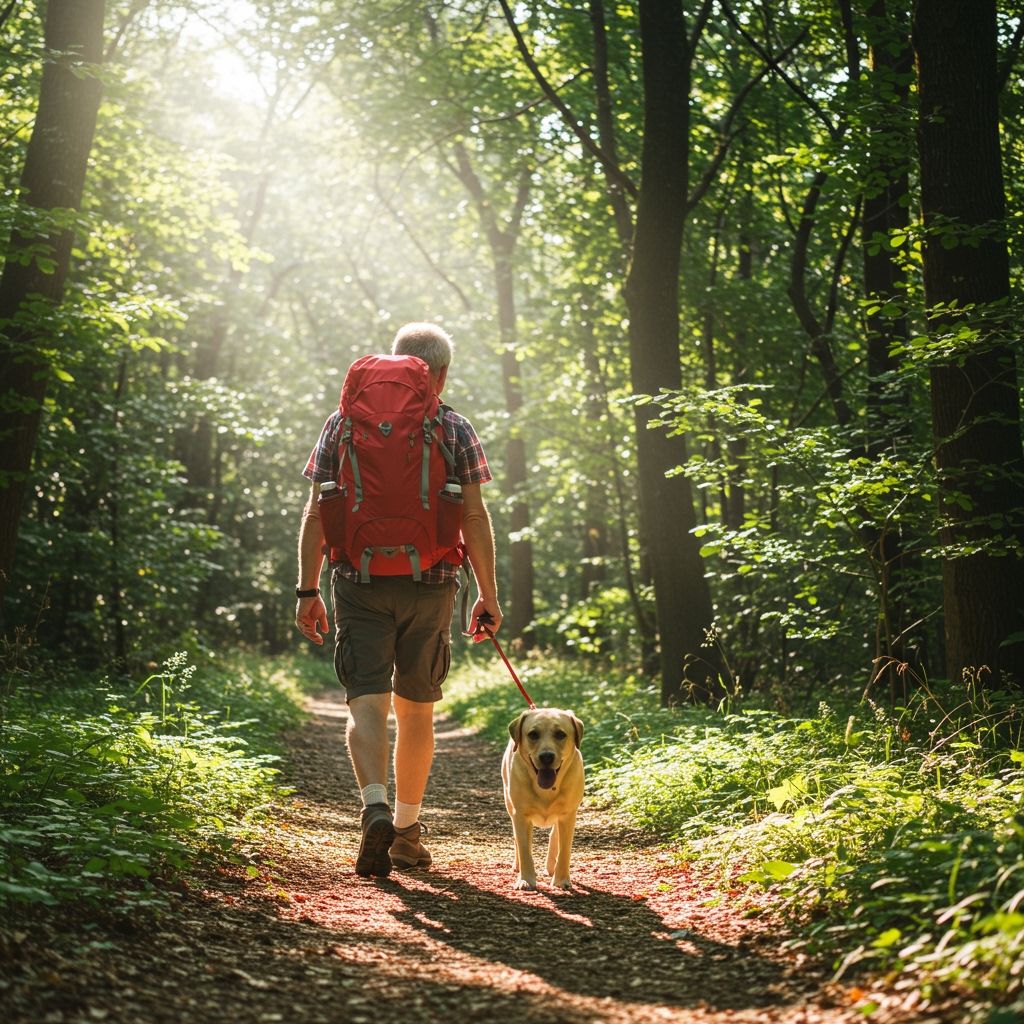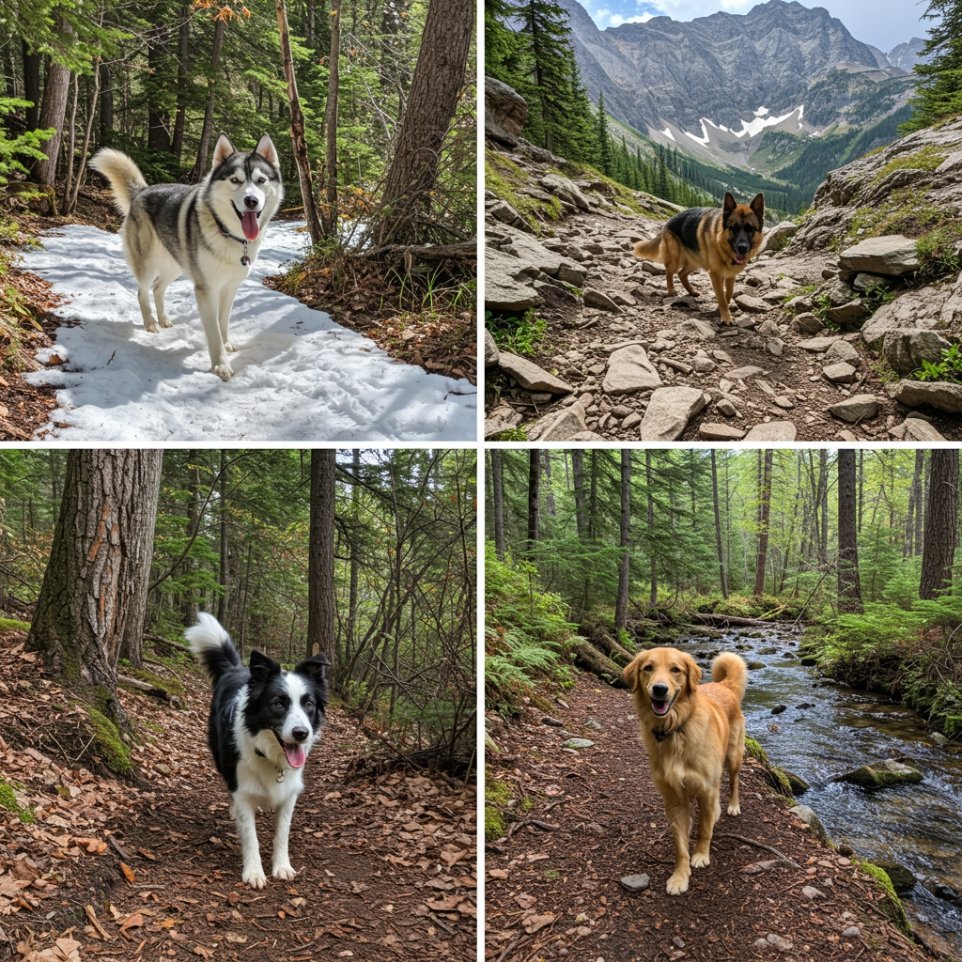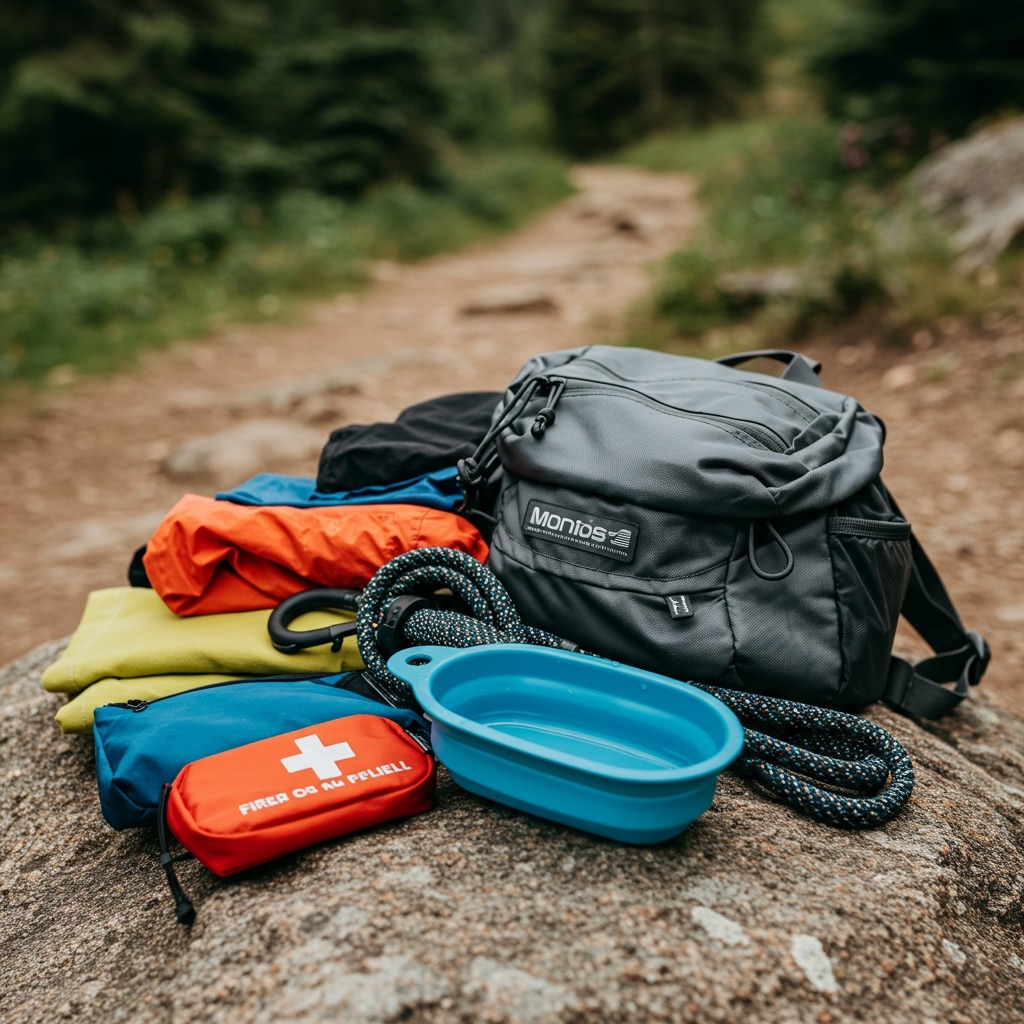Some dogs thrive on the trail. Others struggle halfway up. If you’re choosing a hiking partner with four legs, make sure they’re up for the challenge.
Not every breed can handle the demands of the trail. Some dogs get tired quickly. Others don’t have the stamina or temperament. If you’re planning to bring a dog along, make sure they’re built for it—literally and behaviorally. Here’s what you need to know before hitting the trail.
⏱️ Estimated reading time: 6 minutes
Why Choose a Dog Breed Specifically for Hiking?
Not all dogs are built for adventure. Choosing the right hiking partner affects your experience, your safety, and your dog’s well-being. Ask yourself:
- Can my dog keep up over long distances?
- Will they handle uneven terrain, weather, and distractions?
- Do they enjoy exercise, or do they prefer the couch?
The right breed makes all the difference. You need a dog that’s energetic, durable, and comfortable in the outdoors.
Top 10 Best Hiking Dog Breeds
Based on expert lists from Daily Paws, The Labrador Site, and HiConsumption, these ten breeds consistently rank as top choices for hiking.
Labrador Retriever
- Friendly, eager to please
- High endurance and water-loving
- Great for families who hike often
Siberian Husky
- Bred for long-distance pulling
- Thrives in cold climates
- Needs strong leadership and frequent exercise
German Shepherd
- Loyal and protective
- Versatile across terrains
- Great at carrying packs or learning commands
Australian Shepherd
- Agile and incredibly smart
- Requires a job—hiking fits perfectly
- Can hike long distances with ease
Bernese Mountain Dog
- Strong and steady
- Built for cold weather and mountain paths
- Best for moderate-paced hikers
Border Collie
- Fast learner and hyper-intelligent
- Needs mental stimulation on the trail
- Ideal for off-leash hiking (if well trained)
Vizsla
- Lightweight, fast, and affectionate
- Thrives in warmer climates
- Excellent for trail runners
Alaskan Malamute
- Tough and snow-hardy
- Powerful enough to carry gear
- Independent, so early training is critical
Golden Retriever
- Social, obedient, and energetic
- Loves trails and swimming alike
- Easy to train, even for beginners
Rhodesian Ridgeback
- Bred for endurance in heat
- Strong and confident on trails
- Doesn’t overheat quickly
Quick Comparison Table: Top Hiking Dogs
| Breed | Climate | Endurance | Best For |
| Labrador Retriever | All | High | Families |
| Siberian Husky | Cold | High | Winter hikes |
| German Shepherd | All | High | Versatile hiking |
| Australian Shepherd | All | High | Active hikers |
| Bernese Mountain Dog | Cold | Medium | Moderate hikes |
| Border Collie | Mild | High | Off-leash hikers |
| Vizsla | Warm | Medium | Trail runners |
| Alaskan Malamute | Cold | High | Gear carrying |
| Golden Retriever | All | Medium | Beginner hikers |
| Rhodesian Ridgeback | Warm | High | Endurance hikes |
What to Consider When Choosing a Hiking Dog
A top breed doesn’t guarantee trail success. Here’s what else to think about:
Size and Strength
- Larger dogs can carry gear but need more food and space
- Smaller active breeds may be more practical on long hikes
Coat Type and Climate
- Thick double coats for cold; short coats for hot, dry hikes
- Consider trail season and location before choosing
Health and Age
- Avoid long hikes with puppies or senior dogs
- Joint health and endurance matter—talk to your vet
Tips for Hiking Safely with Your Dog
Dogs need gear, training, and patience—just like you.
- Hydration: Bring a collapsible bowl and plenty of water
- ID: Use tags and microchips in case you get separated
- Paw care: Check paws for cuts or thorns after every hike
- First aid: Pack antiseptic, bandages, and tweezers
- Leash laws: Know the rules—many parks require dogs to be leashed
- Trail prep: Start with short hikes and build endurance
Start with obedience basics and off-leash recall before hiking longer distances.
Best Trails in the US for Dog-Friendly Hiking
Based on resources like This Expansive Adventure:
- Blue Ridge Parkway (NC/VA) – Scenic and spacious
- Mount Tamalpais (CA) – Coastal views and dog-legal trails
- White Mountains (NH) – Cooler weather and rocky climbs
- Boulder Flatirons (CO) – Trail variety and open terrain
- Sedona Red Rocks (AZ) – Great winter hiking spots
Always check local regulations and weather before heading out.
FAQs About Hiking with Dogs
Can small dogs hike too?
Yes—breeds like the Jack Russell Terrier or Miniature Schnauzer can thrive with proper conditioning.
Should dogs carry their own gear?
Only if they’re fit and healthy. Use a lightweight backpack that doesn’t exceed 10–15% of their body weight.
How much water should I bring?
Plan on 1 ounce of water per pound of your dog’s body weight per hour. Increase in hot or dry weather.
What are signs of fatigue or overheating?
Excessive panting, slowing down, or refusing to walk. Stop, rest, and hydrate immediately.
Can any dog become a hiking dog?
No. Temperament, breed, and health matter. Train your dog gradually and be realistic about their limitations.
Choosing the best hiking dog isn’t just about looks or popularity. It’s about finding a reliable partner who shares your love for the outdoors and can thrive under trail conditions. Look beyond stereotypes. Focus on energy, health, and adaptability. Start small, train smart, and hike happy.
Want a dog that loves adventure as much as you do? Choose wisely—and hit the trail.
Read more: Best Hiking Snacks to Keep You Energized on the Trail




